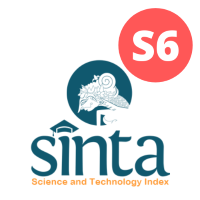PERAN NEGARA DAN PENERAPAN PANCASILA DALAM MEWUJUDKAN NEGARA KESEJAHTERAAN (WELFARE STATE) DI INDONESIA
DOI:
https://doi.org/10.25170/paradigma.v4i02.1642Keywords:
Pancasila; Welfare State; rule of law-based stateAbstract
The position of Pancasila as the basis of the state has given a consequence that the implementation of Indonesia as a rule of law-based state, including to create a welfare state condition, has to be based on Pancasila. The format of this research is a juridical-normative, it means the research used the secondary data. The typology of this research is prescriptive, that gave advice, solution and suggestion for this research. The purpose of this research is to find out the concept of welfare state in Indonesia, and to give usable advice to current state implementation. The result of this research is that welfare state concept in Indonesia is the welfare state which prioritize citizen's welfare, based on the principle of family system with the principle of togetherness, efficiency with justice, continuity, environmental perspective, self-sufficiency and keeping a balance in progress and unity of the national economy, as written in The Constitution of Republic Indonesia 1945. The ideal role of Indonesia to realize a welfare state is to concern on the role as the leader, law and policy maker, also a supervisor which drives the society (including private sector and individual) based on the values of Pancasila, especially the 5th principle (sila ke-5), to work together to increase the welfare in Indonesia, based on their own roles.
References
Asshiddiqie, Jimly. Gagasan Kedaulatan Rakyat dalam Konstitusi dan Pelaksanaannya di Indonesia, Jakarta: Ichtiar Baru van Hoeve, 1994.
__________________. Pengantar Ilmu Hukum Tata Negara, cet.5. Jakarta: Rajawali Pers, 2013.
__________________. Perkembangan dan Konsolidasi Lembaga Negara. Jakarta: Konstitusi Press, 2005.
__________________. Konstitusi dan Konstitusionalisme. cet. 3. Jakarta: Rajawali Pers, 2013.
Blau, Peter M dan Marshall W. Meyer. Birokrasi Dalam Masyarakat Modern [Bureaucracy in Modern Society]. Diterjemahkan oleh Slamet Rijanto. Jakarta: Prestasi Pustakakarya, 2000.
Budiman, Arief. Teori Negara: Negara, Kekuasaan dan Ideologi. Jakarta: Gramedia Pustaka Utama, 1996.
Chaidir, Ellydar. Negara Hukum, Demokrasi dan Konstalasi Ketatanegaraan Indonesia. Yogyakarta: Total Media, 2007.
Indonesia. Perubahan Undang-Undang Dasar 1945.
___________. Ketetapan MPR tentang Sumber Hukum dan Tata Urutan Peraturan Perundang-Undangan. Ketetapan MPR Nomor III/MPR/2000.
Mamudji, Sri, Et. al. Metode Penelitian dan Penulisan Hukum. Jakarta: Badan Penerbit Fakultas Hukum Universitas Indonesia, 2005.
Mustafa, Delly. Birokrasi Pemerintahan. Bandung: Alfabeta, 2014.
Osborne, David dan Ted Gaebler. Mewirausahakan Birokrasi: Mentransformasi Semangat Wirausaha Ke Dalam Sektor Publik [Reinventing Government: How The Entrepreneurial Spirit is Transforming The Public Sector]. Diterjemahkan oleh Abdul Rosyid. Jakarta: Penerbit PPM, 2003.
Phillips, O. Hood, Paul Jackson dan Patricia Leopold. Constitutional and Administrative Law. London: Sweet & Maxwell, 2001.
ARTIKEL/JURNAL/MAKALAH
Alfitri. “Ideologi Welfare State dalam Dasar Negara Indonesia: Analisis Putusan Mahkamah Konstitusi Terkait Sistem Jaminan Sosial Nasional.” Jurnal Konstitusi 9 (September 2012).
Asshiddiqie, Jimly. Cita Hukum Indonesia Kontemporer. Orasi Ilmiah Pada Wisuda Sarjana Hukum Fakultas Hukum Universitas Sriwijaya, Palembang, 23 Maret 2004.
INTERNET
Britannica. “Welfare State”. Dalam https://www.britannica.com/topic/welfare-state. Diakses pada 25 September 2019.
Kementerian Pendidikan dan Kebudayaan. Kamus Besar Bahasa Indonesia. Dalam https://kbbi.kemdikbud.go.id/entri/sejahtera. Diakses pada 28 September 2019.
Menteri Negara Pendayagunaan Aparatur Negara Kabinet Indonesia Bersatu Tahun 2004-2009), “Agenda Strategis Reformasi Birokrasi Menuju Good Governance,” http://www.setneg.go.id/index2.php?option=com_content&do_pdf=1&id=87, diakses pada 26 September 2016.
Downloads
Published
Issue
Section
License
Diperbolehkan atau tidak mempublikasikan tulisan di resopitory instansi penulis







